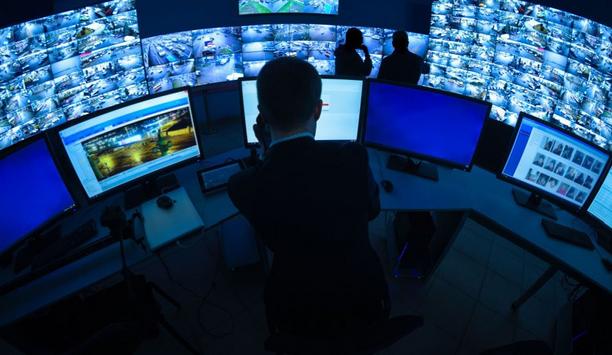How can technology address the security challenges of the hospitality market?
Editor Introduction
The hospitality industry drives economic growth and development by creating jobs, generating revenue, and initiating a ripple effect to improve profitability throughout the supply chain. The hospitality industry includes a vast number of small businesses, including hotels and restaurants. But what are the security challenges of these businesses, and how is the security marketplace serving those needs? We asked this week's Expert Panel Roundtable: How can technology address the security challenges of the hospitality market?
The hospitality market, including quick-serve restaurants, traditional restaurants, hotels, and resorts, face a myriad of security challenges. The risk of armed robbery, burglary, violence against staff, vandalism, employee cash and property theft, and fraudulent liability claims are just a few of the daily threats confronting the industry. Staffing budget precludes most from on-site dedicated security personnel. Security technology can become a force multiplier for these businesses. While almost all have video surveillance, the vast majority use it forensically to gather evidence after an incident occurs. Some proactive companies, however, are now using it in real-time to address issues before they escalate. The use of real-time panic alarms, access control, licence plate recognition, and video analytics has increased substantially in the past three years and provides triggers to alert remote internal staff, third-party monitoring companies, and even local law enforcement in some jurisdictions that a crime is in progress and to expedite response.
In the busy world of hospitality, simplified security solutions that offer flexibility, ease of use and enhances efficiency are vitally important to a business’s operational success. Security technology can not only boost the safety and protection of a site, personnel, and assets, but also play a significant role in reducing costs, reducing risk and streamlining operations. Smart security solutions can significantly reduce administrative burden. Cloud-based technology solutions enable total oversight of multiple sites from one device. Access permissions can be managed remotely, with the ability to grant and revoke access to staff and contractors via a smart phone, thus reducing time and costly technician fees. The status of your security can be accessed from anywhere, at any time, meaning if staff forget to set the alarm, it can be done remotely, and security incidents can be validated and responded to quickly. The simplicity of these solutions provides peace of mind and unrivalled practicality.
AI-based analytics have transformed security in the hospitality market, which was plagued by false alarms and fees when law enforcement was called in unnecessarily. Edge-based video and audio analytics can be used to verify alarms so law enforcement knows a call is legit. Ensuring the safety of employees and customers is paramount, and technology plays an essential role in either deterring potential offenders or prosecuting criminals. AI-powered analytics allows us to detect people and their unique attributes, making it much easier to find persons of interest and search for them in real-time. Likewise, loitering vehicles can be flagged as potential security concerns when people overstay their welcome. Unique analytic tools like scene change detection can alert staff when exits are blocked or doors are propped open beyond a preset threshold. With the latest technology, adopting a more proactive stance to security for the hospitality market is possible.
Technology plays a crucial role in enhancing hospitality security by providing both deterrence and intervention. For deterrence, the technology aims to make people aware that their behaviour is being monitored, either with a live response or through recorded video and audio evidence. This can be achieved using fixed cameras with public view monitors, body cameras, or an “Active Greeter” solution that announces when someone enters a monitored area, providing a clear audio and visual presence. Beyond deterrence, active solutions like virtual guarding offer additional protection during escalating situations. These solutions often involve panic buttons and two-way audio devices used alongside video surveillance for direct interventions. Trained security personnel, located centrally, can monitor these feeds and work closely with law enforcement to respond effectively to incidents. Implementing multiple layers of these technologies closes security gaps, thus ensuring the safety of both on-site personnel and guests in the hospitality environment.
Between room management, operational efficiency and guest satisfaction, the hospitality market faces a unique set of security challenges, and in many cases, these are addressed by a mix of modern technology applications. Over the past decade, innovation in access control has empowered the hospitality industry, for example, with the latest smart systems enabling buildings to utilise keyless entry, mobile key technology and even biometric access, each enhancing the security of buildings by restricting unauthorised access to key areas. To protect guests, staff and assets, decision makers can implement comprehensive security platforms that combine access control with state-of-the-art surveillance systems, alarm systems and visitor management software. Applications are merged into a single interface for centralised monitoring with supporting IoT devices also used to track movements, detect security anomalies, and remotely control access to rooms and facilities. By leveraging these technological advancements, the hospitality market can continue to address security challenges effectively, creating a safe environment for guests and staff whilst enhancing service quality, protecting sensitive data, and improving operational proficiency.
In the retail, gaming, and hospitality markets, an engaging guest experience is often the top priority. But it's important to remember that these businesses must also effectively navigate today’s complex security landscape. Balancing the customer experience with security lies in finding ways to leverage technology, people, and processes to enhance situational awareness and build higher levels of security intelligence. Technology is an important piece of this puzzle — by integrating multiple subsystems and devices together, such as video surveillance, access control, alarms, and sensors into a single unified platform, security personnel can quickly identify potential risks and address them before they become larger problems. This approach also empowers operators to make more intelligent, effective decisions because they have the most relevant, correlated data right in front of their fingers. The result for the business? A more secure facility that ensures where guests want to spend time because they feel safe.
Hospitality management faces the ongoing challenge of balancing guest and employee safety with ensuring a seamless, welcoming experience. Security technology offers a solution by discreetly enhancing protection without disrupting access to shared spaces. With constant foot traffic from guests, employees, and vendors, combining access control with visitor management systems allows for efficient oversight, ensuring that only approved individuals enter the premises at designated times. Advanced video management and analytics further support security teams, enabling them to detect suspicious activity before it escalates. Parking lots and garages, often vulnerable areas, can also be secured through integrated video and parking solutions, maximising both safety and parking revenue. By leveraging these tools, hospitality managers can create a safe yet unobtrusive environment for everyone.
Editor Summary
A secure environment is essential to ensure the comfort and well-being of guests in a hospitality business. Other security goals include protection from theft, vandalism, and other threats. More issues related to hospitality security are mitigating risk and complying with regulations. Fortunately, as our Expert Panellists confirm, there is a wave of new technology developments to help hospitality businesses stay safe and successful.
Which technology has had the most impact on enhancing operational efficiency in hospitality?
- Related links
- Genetec CCTV software
- Salient Systems CCTV software
- Detection Software CCTV software
- Drawing Software CCTV software
- IP Surveillance Software CCTV software
- Management Software CCTV software
- Recording Software CCTV software
- Monitoring Software CCTV software
- Surveillance Software CCTV software
- Related categories
- Power supplies & batteries
- CCTV software
- Bollards
- Barricades
- Gates
- Barriers
- Storage














